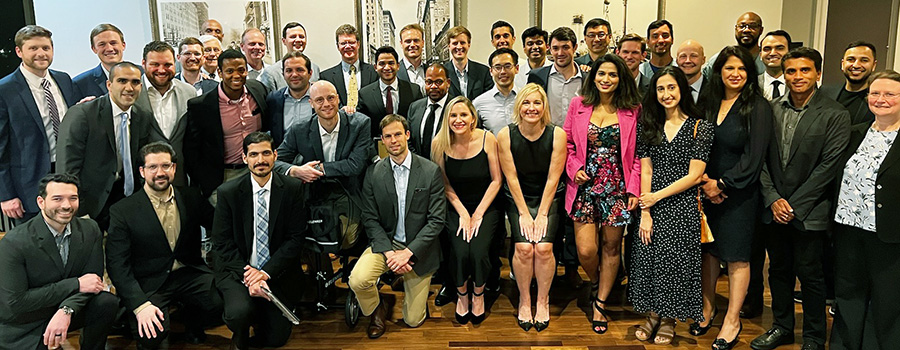
The Division conducts breakthrough research with nationally-ranked educational prgrams and compassionate patient care. It is a regional and national leader in cardiovascular medicine. Cardiovascular disease is the leading cause of death in Alabama and nationwide. The more than 80 faculty and 25 fellows in the division are committed to high-quality patient care, novel research, and innovative education and training programs that will ultimately reduce the burden of this disease in our state and across the country. This enduring commitment has positioned UAB as the site of many “firsts” in cardiovascular care in Alabama, including the first heart (1981) and heart-lung transplant (1988), first use of color Doppler echocardiography (1984), first intracoronary stent (1989), first mechanical circulatory support device (1989), first radiofrequency catheter ablation (1990) and pulmonary vein isolation (1996), first transcatheter aortic valve (TAVR), first percutaneous paravalvular leak closure (2012), and first total artificial heart (2017).
As one of the top-performing heart programs in the country, UAB Medicine is Alabama’s major referral center for complex cardiac and vascular disorders. We offer a wide range of clinical services and expertise, and deliver quality care with compassion and a patient-centered focus. We have a breadth of unique multi-disciplinary programs, including structural heart and complex coronary interventions, complex electrophysiology and devices, mechanical circulatory support and heart transplantation, pulmonary hypertension, advanced cardiac imaging, cardio-oncology, adult congenital heart disease, pregnancy and heart disease, pharmacogenomics, and refractory hypertension. Our clinical programs are housed in the UAB Hospital and Clinics, various UAB outreach sites across the state, and the Birmingham VA Hospital. Our faculty comprise a large part of the UAB Comprehensive Cardiovascular Center, which supports innovative and cross-disciplinary cardiovascular science across the UAB campus. We are also part of the UAB Medicine Heart and Vascular Services which integrates all clinical cardiovascular services across the UAB Health System.
Our clinicians, researchers, and educators are leaders in the field. We combine our multifaceted expertise with unparalleled innovation. Our tripartite mission is to provide the highest quality care to our patients, including in the most serious and complex situations, to foster cardiovascular scientific discovery and develop new therapeutic innovations, and to train the future generation of cardiovascular specialists and researchers. Our ability to treat conditions both commonplace and complex, from preventive cardiology to advanced heart failure and heart transplantation, gives our patients the confidence and ability to improve their heart health and quality of life.
In addition to clinical care, research is foundational to our mission. Our clinical investigators are supported by the Cardiovascular Clinical Trial Unit (CCTU) that manages over 90 clinical research studies, including trials in heart failure, pulmonary vascular disease, mechanical circulatory support, structural and interventional cardiology, electrophysiology, hypertension, general and preventive cardiology, and investigator initiated cardiovascular outcomes research. Our basic and translational investigators are pushing the frontiers of discovery to understand the pathophysiology and mechanisms of cardiovascular disease and to translate this knowledge into the clinic. Our research faculty are recognized internationally for work in inflammation and cardiovascular disease, cardiac remodeling and fibrosis, heart failure, basic electrophysiology, circadian rhythms, and atherosclerosis and vascular biology. We have made groundbreaking discoveries in how changes in the immune system can drive heart failure, how misalignment of circadian rhythms can promote obesity and cardiometabolic disease, and how specific lipoprotein mimetics can modulate vascular disease.
The last component of our mission is training and education. We are invested in our trainees, with approximately 25 fellows per year in our general cardiovascular disease fellowship and advanced sub-specialty fellowships in electrophysiology, interventional and structural cardiology, and advanced heart failure and transplant cardiology. We also train the next generation of cardiovascular scientists under the auspices of two T32 post-doctoral training grants in the division, one related to vascular biology and hypertension, the other to heart failure.